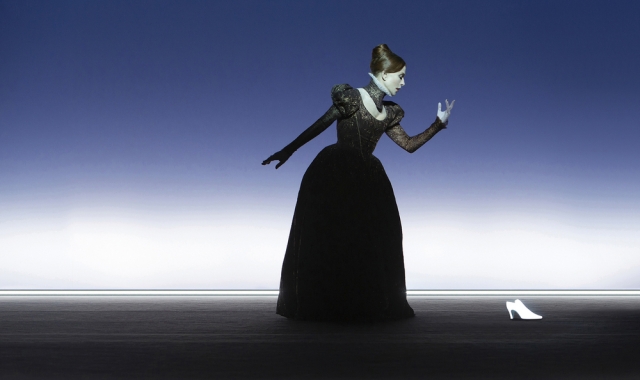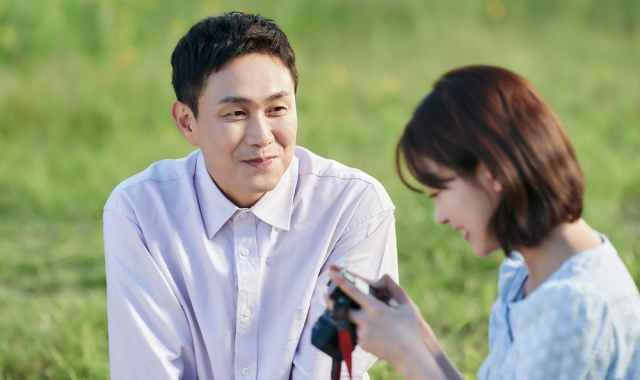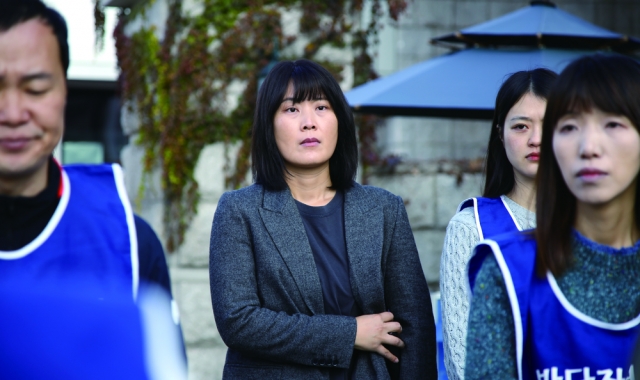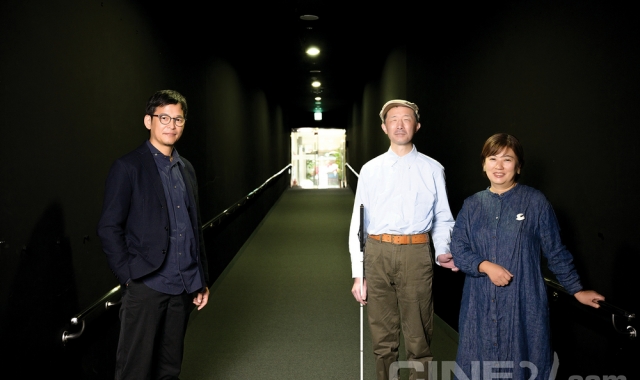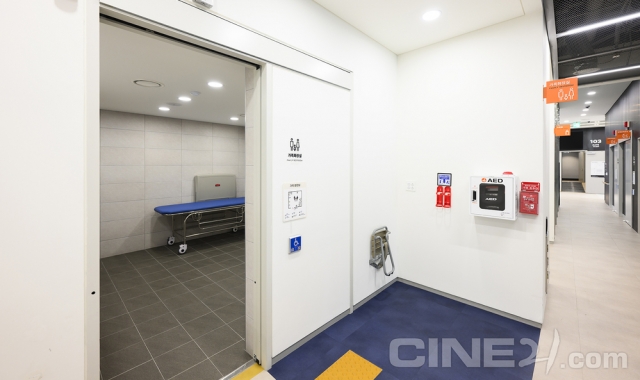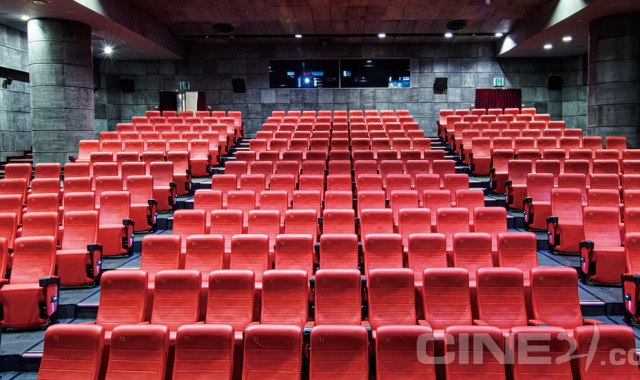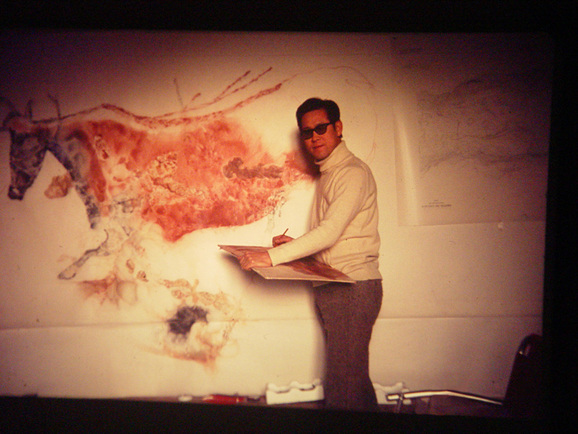
2003년 이후, 한국 독립다큐멘터리의 뚜렷한 특징으로 대두된 1인칭 화자의 전면적인 등장 즉, 감독에 의한 1인칭 내레이션은 이번에 상영되는 다양한 작품들을 통해서도 볼 수 있다. 다큐멘터리와 현실, 이 양자의 관계 맺음의 주체인 감독의 전면적인 등장이 가지는 의미가 무엇일까를 관객들과 고민해보고 싶다.
몇 해 전 <평범하기>란 작품으로 좋은 평가를 받은 최현정 감독의 신작 <코리안 돈키호테 이희세>는 2005년 유니 코리아 펀드 수상작으로 감독이 작품을 만들면서 대상과 관계를 맺어 나가는 과정을 영화 속에 직접적으로 드러낸다. 재불 민주 투사이면서 화가인 이희세. 그의 첫사랑은 그림이었고 두 번째 사랑은 조국통일운동이다. 변함없이 한 길을 걸어온 노년의 화가는 두 번째 사랑 때문에 현재는 첫사랑에게 다가갈 엄두가 나지 않는다. 하지만 세상과의 소통을 위해 나무뿌리를 다듬고 다듬어 조각을 하고 있다. 나무뿌리는 조각가에게 까다로운 대상이다. 그 질료의 강한 성질을 거스르지 않으면서도 조각가의 마음이 새겨져야 한다. 이 창작과정은 이중적인 함의를 지닌다. 하나는 그의 세계 질서의 까다로운 변화에 직면한 통일운동가의 실천이 그 창작과정과 깊이 닮아있다는 점이다. 다른 하나는 바로 이 다큐멘터리 감독이 피사체인 타자를 카메라에 담는 행위 역시 그 창작과정과 유비를 이룬다는 점이다. 한 질료가 다른 질료와 만나고, 한 관점이 다른 관점과 만나 조화를 잃지 않으면서 이상을 향하는 것. 이것이 이 다큐멘터리가 이른, 자신과 세상에 대한 은밀한 깨달음이다. 그 깨달음은 어떤 관점의 주장보다 더 깊은 인상을 남긴다.
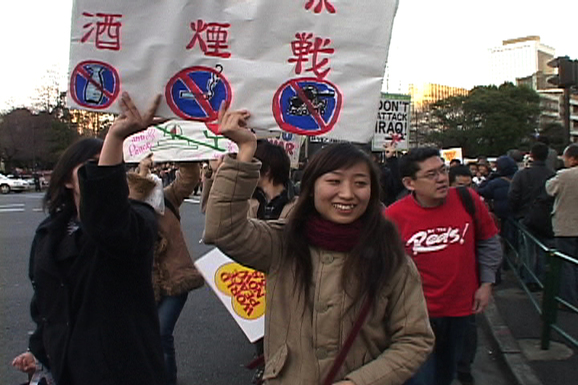
1995년 <건너야 할 강>으로 1회 부산국제영화제를 찾았던 재일동포 김덕철 감독은 6년에 걸친 작업을 마무리한 <강을 건너는 사람들>로 다시 관객들과 만남을 기다리고 있다. 한 일 양국 관계와 역사에 대한 서로의 관점을 보여주는 획기적인 다큐멘터리였던 <건너야 할 강> 에 이어 오랜 시간 동안 같은 주제로 고민하고 성찰한 <강을 건너는 사람들>은 한국과 일본 두 나라 사이에 흘러간 시간, 역사를 걸어왔던 사람들의 길, 그리고 새로운 길을 열어가려는 양국 사람들의 만남을 관찰자적 시점에서 그려가고 있다. 4명의 주인공을 설정하여 그들의 삶과 고민을 조용히 따라가고 있다. 4명의 주인공이 서로 만나거나 직접적으로 연결되지는 않지만, 또 그들의 삶과 생각은 각각 다르지만 결국 하나의 큰 흐름 안에서 공동의 가치를 향해 움직이고 있음이 드러난다. 장기간의 작업과 여러 명의 주인공으로 인해 혼란을 줄 수도 있는 구성이지만, 차분하면서도 절제된 카메라와 세련된 편집이 관객을 주인공들의 삶과 생각으로 편하게 이끌어간다. 이 다큐멘터리는 대답이 아니라 질문이다. 우리는 어디에 서 있으며 우리는 서로의 모습을 있는 그대로 보지 못하고 있는 걸까. 개개인의 마음속에 새겨진 외상을 응시하지 않는 한 진정한 관계는 있을 수 없다는 전언을 이 다큐멘터리는 무겁게 전해준다.
이 작품과 더불어 재일조선인 3,4세들의 학교생활을 담은 <우리학교>도 주목할 만하다. 이 작품은 조총련계인 홋카이도 조선초중고급학교에 다니는 고급부 졸업반 학생들의 1년간의 생활을 통해 ‘조국’의 의미를 전면적으로 다시 생각하게 한다. 이 작품은 특정한 사건이나 이슈가 아니라, 학생들을 일상과 그들을 접하는 감독의 심경을 담고 있다. 함께 기숙사 생활을 하고 조선어로 수업을 받고 일본에 살면서 조선 사람이라는 정체성을 지켜가려는 학생들과 선생님 그리고 부모들의 작은 투쟁, 졸업식에서 흘리는 학생들의 눈물, ‘조국 방문’을 위해 평양으로 향하는 학생들과 그들과 같은 언어를 쓰면서도 동행할 수 없는 감독 자신, 평양을 방문하고 온 학생들의 혼란스러운 눈빛 등은 분단과 재일교포에 대한 어떤 사회적 진단보다 묵직한 감흥을 전한다. 두 작품 모두 촬영감독출신이 만든 다큐멘터리로 편안하고 시원한 카메라가 보는 즐거움을 더해준다.
마지막으로 여성 노동자들의 삶과 투쟁을 지속적으로 만들어온 박정숙 감독의 <동백아가씨>는 둘째 아이를 갖게 되면서 중단되었다가 아이를 낳고 완성한 작품이다. 감독의 말대로 엄마가 되기 이전의 작품들과 엄마가 되고 난 뒤 세상을 바라보는 시선이 달라졌다. 77세의 명랑하고 재치 있는 할머니는 역사와 사회로부터 존재마저 거부당한 채 살아온 소록도의 한센인(나병환자)이다. 할머니를 바라보는 감독의 따듯한 시선과 눈이 부시도록 아름다운 소록도의 풍광 그리고 역사의 굴레에서 편견과 무지함으로 비참하게 살아갈 수밖에 없었던 한 여성의 지난한 삶을 통해 우리 사회의 어두운 단면을 응시한다. 작은 배려만 있었다면 평범한 여성으로 어머니로 살 수도 있었던 그녀의 삶은 과연 어디서 찾을 수 있을 것인지 감독은 반문한다.
Programmer Hyosook Hong Recommends Four Korean Independent Documentaries
After 2003, Korean independent documentaries have been marked by director narrations, a feature that figures prominently in this year's selections as well. As a result, we join with spectators in struggling to know the meaning these directors seek to impart.
Choi Hyun Jung's new film <Korean Don Quixote, Lee Hise> addresses the life of Korean artist Lee Hise, a democracy activist living in France. Lee's first love is painting, his second, the unification of his homeland. Yet, because of the dogged pursuit of his second love, this elderly painter hasn't been able to partake in the first. To communicate with the world, he creates carvings of polished tree roots. This complex process shares a deep resemblance with the difficult task of achieving his goals as an activist working for Korean unification; and also with his being the subject of the director's camera.
Kim Duk-chul, an ethnic Korea in Japan, spent six years making the film <People Crossing the River>. This documentary depicts the meeting between those who've walked the long road of history between Japan and Korea and those who wish for a new one to open. With its long-term production and multiple main figures, the composition may be a bit disjointed, but the documentary's tranquility, in its steady camera and refined editing, comfortably lead the viewer through this textured story. Ultimately, this documentary is not an answer, but a question. It delivers the quiet message that it is impossible to have genuine relationships that don't acknowledge the deep pain etched within each of our hearts.
<Our School>, about 3rd and 4th generation North Koreans in Japan, also merits our attention. Rather than focusing on any special event or issue, it captures the director's state of mind as he observes the daily lives of the senior class of the Chosen School in Hokkaido. Rather than offering a serious diagnosis of the division between South and North Koreans living in Japan, the depiction of the students' minor struggles with parents and teachers, the confusion on their faces as they visit Pyeongyang, and the inability of the director to travel with them to North Korea, even though he speaks their same language, all contribute to a rather weighty pleasure.
The final recommended documentary is director Park Jeong Suk's <Camellia Lady>. The 77-year old woman at the center of the story, so bright and quick-witted, faced total social rejection while living with leprosy on Sorok Island. Weaving the dazzling sights of the island's pristine beauty into a story tracing one woman's life of misery in the face of discrimination and cruelty, Park fixes her gaze on a dark side of Korean society. Noting that with only a little consideration from society, this woman's life could have been a normal and happy one, the director demands to know where such a place can be found.
